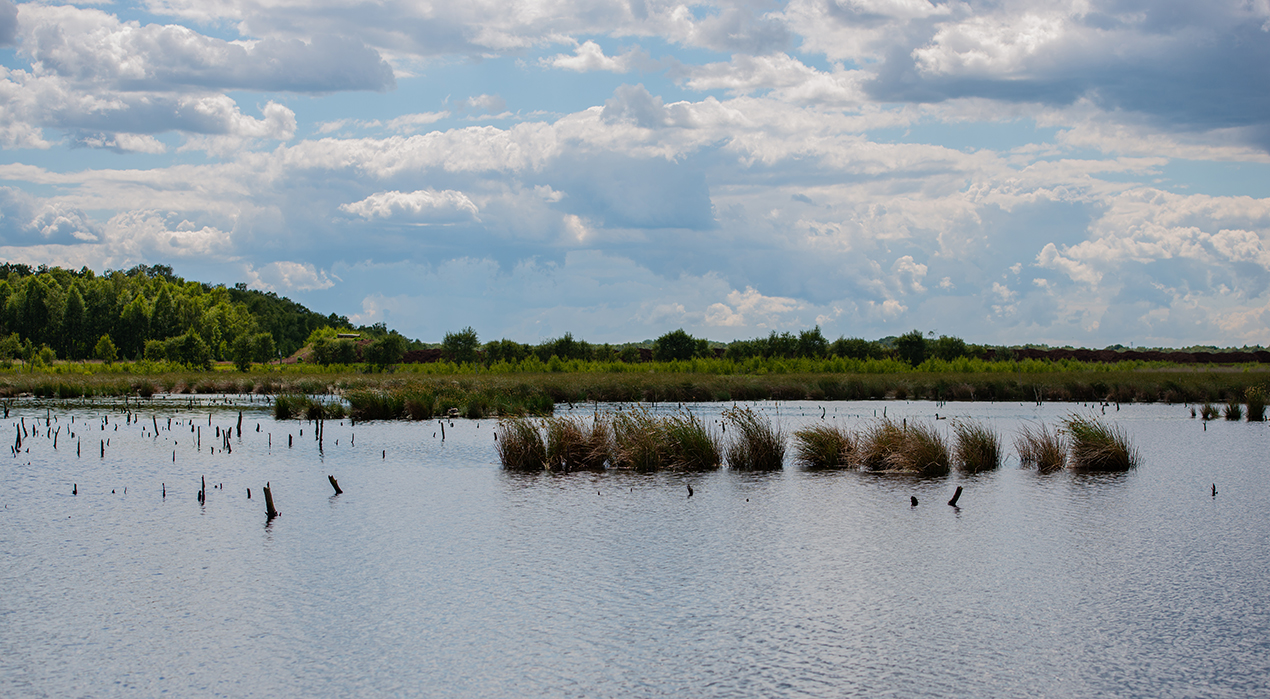
Policy Recommendations
for Wetland Restoration
REWET Policy Briefs & Guidance

The REWET project works to ensure that wetland restoration is backed by sound, evidence-based policy. Led by IUCN NL, the policy work within REWET provides the knowledge, analysis, and practical recommendations needed to guide decision-making across Europe.
Over the course of the project, REWET is producing a series of policy briefs that translate scientific findings into actionable insights for policymakers at both the European and national levels. These briefs analyse current environmental legislation, highlight opportunities for improvement, and identify policy pathways to accelerate wetland restoration. Alongside the policy briefs, IUCN NL has developed a comprehensive Theory of Change titled “From EU Nature Restoration Regulation to Effective Implementation”, providing a practical roadmap for turning legislation into real, long-term restoration outcomes.
On this page, you can explore all REWET policy outputs, each offering clear messages and recommendations to strengthen wetland governance and drive effective restoration across Europe.
The EU Road Towards
Healthy Wetlands
Europe’s biodiversity continues to decline. This also concerns wetland ecosystems: 80 percent of European wetlands have been lost in the last 100 years. Throughout most of human civilisation,wetlands have been considered ‘unproductive land’ and were drained for agricultural purposes and urbanisation. As a consequence, wetlands, including bogs, mires and fens, are now among the most degraded ecosystems in Europe. They are essential in tackling the triple crisis of climate change, biodiversity loss and pollution – if managed well. Without existing EU legislation, member countries would be further away from reaching the 2030 climate and biodiversity targets. Nevertheless, there is a need for more effective measures to achieve wetland restoration, both at EU and national level.
REWET POLICY BRIEF 1
PDF file: EU road towards healthy wetlands
Aligning efforts on the EU road
towards healthy wetlands
Restoring wetlands delivers vital ecosystem services and unlocks economic opportunities. If managed sustainably, European wetlands act as powerful carbon sinks, sequestering vast amounts of greenhouse gases. Large-scale restoration is essential to revive these ecosystems and restore their natural functions. A REWET analysis by IUCN NL highlights the need for clear regulatory frameworks and strategic alignment of restoration efforts across local, regional, and national levels to achieve the greatest impact. Effective restoration at the EU level requires strong coordination among Member States to upscale wetland recovery and climate resilience.
REWET POLICY BRIEF 2
PDF file: Opportunities for wetland restoration
Opportunities for wetland restoration
through the natural restoration plans
The new EU Nature Restoration Regulation (NRR) sets legally binding targets and timelines for all Member States to restore ecosystems and safeguard biodiversity. To comply, each EU Member State must develop a National Restoration Plan (NRP) by September 2026, identifying priority areas for restoration and engaging local stakeholders to ensure effective implementation. A REWET analysis by IUCN NL provides an overview of recent insights in wetland restoration, offering guidance and inspiration for those drafting NRPs to maximize efficiency and ecological benefits.
REWET POLICY BRIEF 3
PDF file: Accelerating wetland restoration despite knowledge gaps
From Regulation to Restoration:
REWET’s Theory of Change
Effective restoration only works when policy and practice pull in the same direction. To support this, IUCN NL has developed a comprehensive and innovative Theory of Change (ToC) titled “From EU Nature Restoration Regulation to Effective Implementation”.
The ToC provides a practical roadmap for policymakers and practitioners, outlining the steps, outputs, and outcomes needed for long-term wetland and peatland restoration. It also highlights clear rewetting pathways and flags the main barriers that can hinder success helping ensure Europe’s restoration efforts are both effective and lasting.
PDF file: Read the full ToC